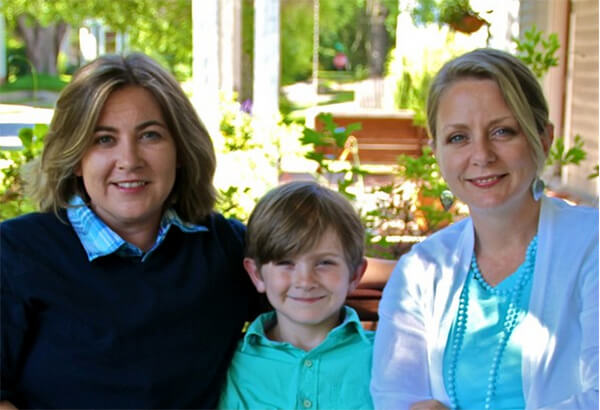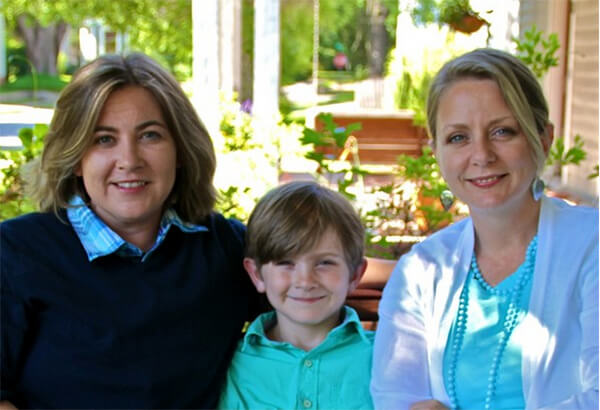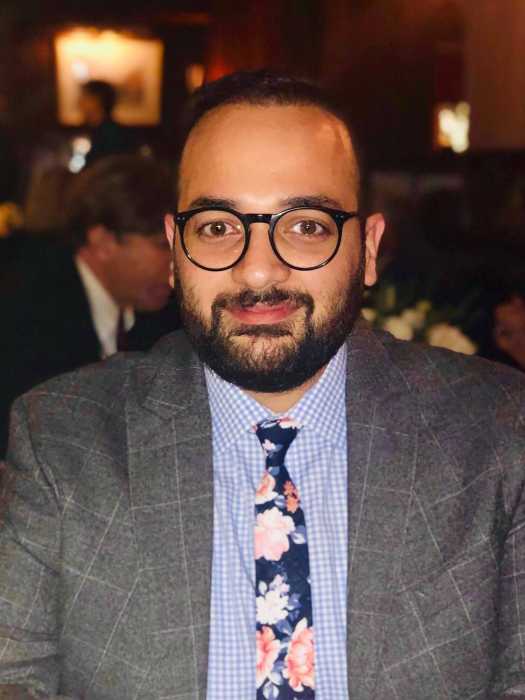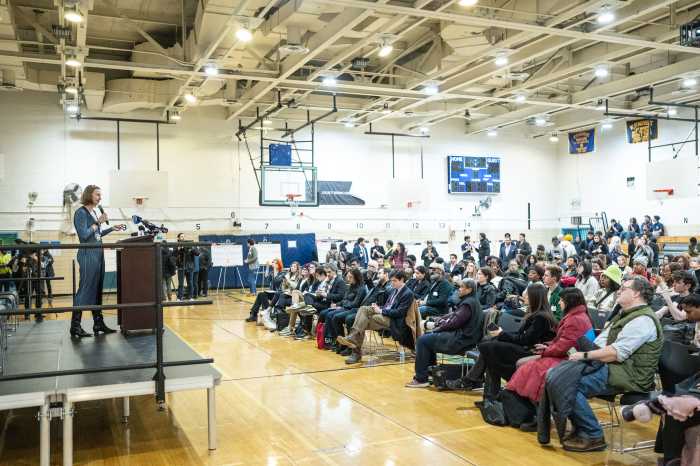Cari Searcy and Kimberly McKeand, with their son K.S.
BY PAUL SCHINDLER | The federal judge who issued a marriage equality ruling in Alabama on January 23 has now stayed her ruling for 14 days to allow the state the opportunity to seek a longer stay from the 11th Circuit Court of Appeals as it wages an appeal on the merits to that court.
In an order dated January 25, Judge Callie V.S. Granade wrote, “In its discretion… the court recognizes the value of allowing the Eleventh Circuit an opportunity to determine whether a stay is appropriate. Accordingly, although no indefinite stay issues today, the court will allow the Attorney General time to present his arguments to the Eleventh Circuit so that the appeals court can decide whether to dissolve or continue the stay pending appeal.”
Granade made clear, however, that she does not see merit in the state’s request for delaying the advent of marriage equality in Alabama while an appeal plays out.
The state’s attorney general, Republican Luther Strange, she found, “has not shown that he is likely to succeed on appeal. The Attorney General seems to concede that he cannot make such showing because his argument on this point simply refers to the arguments he made in connection with his motion for summary judgment, which the court has rejected.”
Granade noted that plaintiffs Cari Searcy and Kimberly McKeand, represented by Mobile attorneys Christine Hernandez and David Kennedy, argued that recent actions by the Supreme Court indicate that it no longer views the possible risk of reversal of the validity of same-sex marriage cases to be a basis to stay” a marriage equality ruling.
In December, the Supreme Court declined to extend a stay of a federal marriage equality ruling in Florida even though the state is pursuing an appeal in that case. Same-sex marriages began in Florida on January 6.
The Supreme Court weighed in on the Florida stay question after an 11th Circuit Court of Appeals panel also rejected the state’s motion to extend it. Another panel of the 11th Circuit, considering a request for an extended stay from the State of Alabama, would not be bound by the decision in the Florida case, so there is uncertainty as to how this matter will play out.
Granade rejected Strange’s argument that the State of Alabama would suffer “irreparable harm” if same-sex marriages are allowed only to have her January 23 ruling later overturned. The only parties who face any risk on that score are same-sex couples who marry, she found. Meanwhile, delaying same-sex couples from marrying causes irreparable harm for them.
Granade found that any harm to “the public interest” from “the confusion and inconsistency that will result from an on-again, off-again enforcement of marriage laws” is outweighed by the harm done to same-sex couples by blocking their access to the right to marry.
In her January 23 marriage equality ruling, Granade found that the state “fails to demonstrate any rational, much less compelling, link between its prohibition and non-recognition of same-sex marriage and its goal of having more children raised in the biological family structure the state wishes to promote.”
Some probate court judges –– who are responsible for licensing marriage in Alabama –– argued over the weekend that Granade’s ruling applies only to the one plaintiff couple, and in response the plaintiffs sought clarification from Granade, whose ruling had concluded that Alabama's statutory and constitutional marriage bans “are unconstitutional because they violate they Due Process Clause and the Equal Protection Clause of the Fourteenth Amendment.” The state, she ordered, “is enjoined from enforcing those laws.”
Because Searcy and McKeand's lawsuit was aimed at marriage recognition and not the right to marry, no probate judge was named as a defendant. In her stay order, Granade wrote that she would “issue a separate order addressing plaintiffs’ request for clarification of the court’s injunction order.”
There was a similar controversy about the scope of the federal district court ruling in the Florida marriage case, which led to an extraordinary clarification issued on New Year's Day, five days before it went into effect.





































